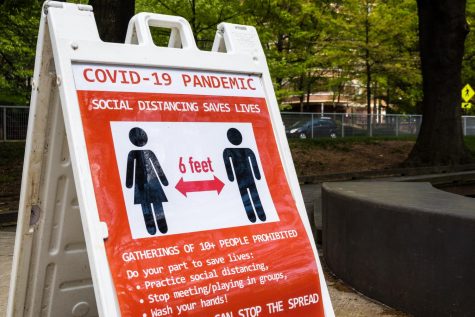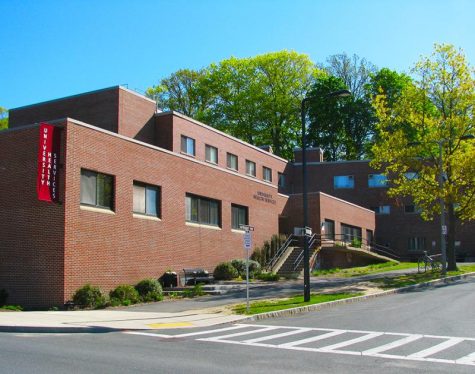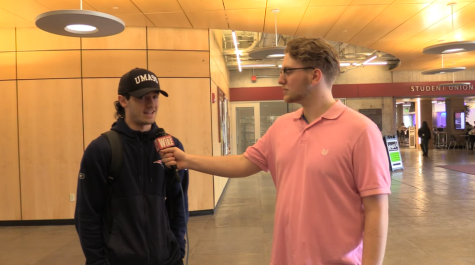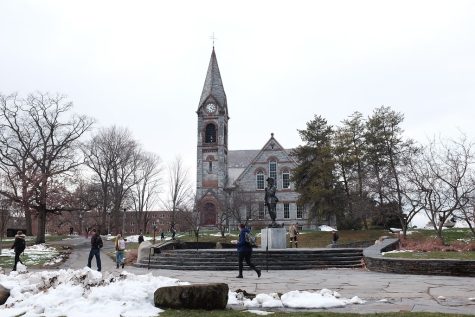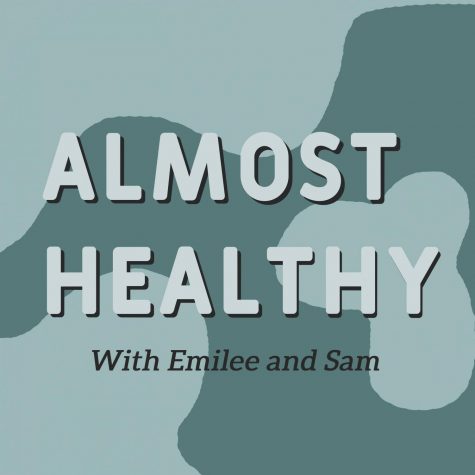Pandemic Politics: Unpaid Internships
Youth organizers dive into the injustice of unpaid progressive campaign labor
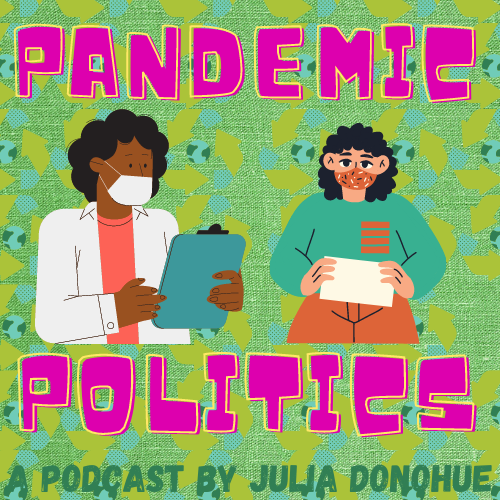
PODCAST TRANSCRIPT
LAWRENCE CIULLA
Age: 26
Co-founder of Borough Strategies (NY): I’m somewhere between like, probably says, I think I’ll say progressive. I don’t know how to best identify that because I think that means a lot of different things to different people. But an Elizabeth Warren type will probably be my number one alignment there,
HANNAH STERN
Age: 18
Volunteer for Sunrise (NH, TX) and Field Organizer for Joe Biden (PA): Like Bernie Sanders left, like Green New Deal and Medicare for All.
LILLIAN GIBSON
Age: 18
Green New Dialer for Markey (MA) and Youth 4 Wu Facilitator (Boston, MA):
So I think I probably, you know, pushed more to the left during the pandemic, I think just seeing all the inequalities, just with vaccine rollouts, and just with more people just being less or just denying the science, I think that really has pushed me further. Also seeing how politically motivated people are over the lives of people as if they pushed me more to, you know, where I am now.
EMMA BELLA BASS-LAWRENCE
Age: 19
Rising Sophomore at Wesleyan
Organizer for Brandon Chafee (CT):
Mm-hmm. I mean, I definitely… look I call myself a leftist. Sure, that’s kind of a loaded term. But yes, I’d call myself a leftist.
JULIA DONOHUE: These voices are just a few of those who surge into politics during the Covid-19 pandemic. As the Twitter world shifted left young organizers created roles that didn’t previously exist in political spheres. For this story, I spoke with organizers, interns and facilitators on digital organizing unpaid internships and compromise candidates. This is part one, unpaid internships.
Lillian Gibson, soon to be high school graduate based in Boston, joined Students for Markey, a largely online-based organization of high school and college students geared to reelect the Massachusetts senator. When Ed Markey won his primary election in September, Gibson shifted her efforts to the Boston Mayoral campaign. She’s a facilitator of Youth for Wu, formerly Students for Wu, an effort to elect Boston city councilor Michelle Wu as Mayor of Boston. Youth for Wu attempts to gather young people enrolled in school are not, by a political candidate they believe will hear their powerful roar in the echo chamber of bureaucracy.
GIBSON: For me, when it comes to having Michelle as mayor versus Marty Walsh, I think that Boston has just always had, you know, a certain type of mayor. It’s like a, you know, white male mayor, when it comes to at least climate, which is one issue I hear about a lot. Marty Walsh has a plan called the climate ready plan. And I think that that was very, like, to me climate ready when climate change is already happening. And it’s already an issue that sort of shows where I feel like he stands on issues where he’s not making clear that different issues are already present in our city and are already affecting people. And I think that Michelle is one who will take on these issues, not just wait, or make these plans just for the future, but be ready to attack different issues that maybe Mark Walsh hasn’t really acted like on enough.
DONOHUE: The difference between former mayor and now Secretary of Labor, Marty Walsh, and Wu is the difference between taking on climate change and waiting until it’s far too late for the recent high school grad. Although Walsh was born, grew up in and maintains residents in Dorchester. Gibson believes his environmental plans have long ignored her neighborhood
GIBSON: I think that when it comes to climate and Dorchester, of course, flooding is a huge issue. And between sort of South Boston and Dorchester and Morsi Boulevard, which runs near the National Grid tank, experiences a lot of flooding because of the rise in sea level. And that’s one thing that I’ve noticed, always just like, all the orders will be like flooding mornings there. And it’s become even worse in these more recent years, just how intense the flooding on this level, it was just right by the highway. And that was one thing that I always noticed as a young person, but then also, the urban tree canopy in Dorchester and other neighborhoods, like East Boston or Roxbury is, you know, nothing compared to the tree canopies in other areas of the city. And so that’s something that I’ve always noticed just how the tree canopy can change on like racial and wealth lines and how even in Dorchester, you go from one street that has no trees and move over to another street that has, you know, trees on both sides of the street. It’s like my street, for example, my street only has one tree, and it was only planted, I think, maybe in the fall. So seven years of having Marty Walsh in office, only one tree was planted on my street. And I think that that’s an issue. But I, you know, care about a lot because I think it’s just unfair that people who happened to be, you know, close to the train lines like I’m close to the company, the commuter line runs through that people in these areas who, you know, have been sort of forced to, you know, experience pollution on different loads and other areas of the city also do not have the tree canopy that they deserve to have. And I think those are two issues that I care about a lot when it comes to climate read right by me. But I think that a Green New Deal can just do so much more than just, you know, help our flood flooding infrastructure or add more trees but I think it’s really important that we are centering the people who are most affected in that change. And so when she announced her, her green New Deal having different communities who experienced you know, different environmental and justices whether that’s you trees being being cut, or like that trees that literally be cut being cut down or 20s being told that being consulted that, you know, a certain part of land is going to be taken away seeing communities were most impacted have a place and platform at that initial launch for planning meant a lot to me because I think that these are the people who need to be you know, like need to be the ones who are in front or getting their voices heard when they have it in for so long.
DONOHUE: Emma Bella Bass-Lawrence is a freshman at Wesleyan College in Middletown, Connecticut, like Gibson, she’s passionate about progressive policies. She spent the fall semester campaigning for state senator Brandon Chafee, local to the area, won his re-election in November while campaigning on issues like marijuana legalization, union rights and carbon neutrality.
BASS-LAWRENCE: I think it’s very important that people are representing communities that they actually grew up in and up in the area. And I think one of the main things that I really loved about Brandon is that he had lived in Middletown his whole life and was also educated totally in Middletown public schools, and at Connecticut State Universities, which I thought really, you know, just showed that you know, someone who is just very much a part of the community and has been a part of the community for their whole life. But I think the main thing that really drew me to him was those super left-leaning policies.
DONOHUE: The most notable difference between Gibson and Bass-Lawrence’s work was pay. While Gibson’s position is not officially affiliated with Wu’s mayoral campaign, her work bears a striking resemblance to that of bass Lawrence believes she was fairly compensated for 20 hours a week spent organizing volunteers and contacting voters, all while maintaining a full course load.
BASS-LAWRENCE: Our campaign manager Nick who I previously mentioned, like both him and Brandon are very big workers rights unions people. As I mentioned, Brandon is a union organizer. And Nick is like, he is in the high up in the Working Families Party of Connecticut and leads Our Revolution Connecticut, so campaign with people who are very worker focused. And so I think I do think I was fairly compensated for the work that I was doing, and I think it was a good environment. I think the main choice that we made is that we did get a pretty decent amount of funding from the Connecticut State Election Commission for the campaign and definitely spent more on staff than our comparable campaigns would have spent and I think we definitely spent less on like mail and lawn signs and on consultants than similar campaigns usually spend in favor of staff pay and I think that’s definitely the right decision for me.
DONOHUE: For Borough Strategies founder, Lawrence Ciulla, the voice of high school and college students is beyond valuable but comes at a price. Ciulla oversees the hiring of interns and fellows across various NYC-based campaigns and remembers the defeat he felt in an unpaid political internship.
CIULLA: I remember there was one time I was on a presidential campaign and I’ve been on a few campaigns at that point but I have a few years experience at that point. And I remember I was doing some I thought serious work was helping doing some advanced work. I was helping get endorsements for the campaign. But then one day I was asked to pick somebody else, just like lunch. And I was like, This is not great. This is not okay with me because first of all, I’m not getting paid. Second of all, Grubhub exists. But third of all like, if this is your value for an intern that my voice will never it will never matter what I sent like what I do because I was asked to do this menial tasks means I am looked upon as someone whose time is not as valuable. And voice is not as important to be in the office, or whatever meeting was present. I’m the one who’s picking up lunch at the time.
DONOHUE: Three weeks later, Ciulla left that position.
CIULLA: I was still in school at the time. So like, that helped push me like I was like, and like my opportunity was either like, hey, like, take a semester off of school continuing this campaign, which if I had been treated differently, and I felt like I was actually making difference, I probably would have been like, yes, it’s a good idea. But I, the moment I just thought, I, I’m doing things that are super replaceable. There’s no uniqueness that I’m adding to this. And while I really appreciate being in the room being here, being asked to even, you know, kind of show up there. I can’t survive on flattery alone. And no one cares. Like, I remember there was a time that I think I showed up late to work and no one noticed. And it got like, we think it’s fine. But like it got me thinking of like, I get that I’m like doing these things. And I get that it is a very large campaign. But it doesn’t, just like it didn’t. My voice was not necessary.
DONOHUE: I’ve asked everyone and I feel like it fits well, in this moment. How do you think unpaid positions hurt the credibility of progressive political campaigns, and just to give you like, progressive can be whatever you want it to mean, and it doesn’t have to be Elizabeth Warren?
CIULLA: No, it’s so huge. It undermines the entire message, everything if you’re not willing to pay your volunteers a minimum wage, and frankly, I don’t think you should pay any intern minimum wage, but its staff or like anyone, I don’t think anyone in which is in your saying their efforts are literally worth a minimum to your campaign, it is worth the bare minimum, you’re doing this because you were maybe legally mandated, or you just kind of feel this,
BASS-LAWRENCE: I feel like credibility is up to how we perceive it. Like to me, I would perceive a candidate as less credibly progressive, and I would perceive as less credible when it comes to workers rights and everything if they did not pay their staff. Well, however, I believe that a lot of people maybe don’t realize the degree to which various campaigns rely on unpaid labor or maybe don’t like it. It’s not always public information, not always widely talked information, exactly how it’s what the various campaigns are. And so I think, and so I think a lot of people like that credibility is definitely vulnerable as a result of that. But if we don’t know exactly how exploited ever exactly how dependent on unpaid labor campaigns are, you can’t really hold them accountable unless you unless, you know, unless that’s widely talked about.
MOORE: I think if you’re bringing someone on and an official role, like as an intern, and you’re not paying them, I think that absolutely damages the credibility of any progressive institution, because it, you know, makes it inherently elitist, and that exacerbates racial and economic inequalities. I think, you know, unpaid volunteer work is different, like, I would like to see volunteers compensated more, that’s also like the point of volunteerism. But yeah, I don’t think that, you know, as progressives, we can advocate for economic equality for not acting on it in our own institutions.
STERN: Like, if an organization has some money to compensate people and make something accessible for everyone, then they should do it. I know Mike Siegel’s campaign didn’t have the money. So obviously, they can, but also, like, you aren’t paying, there’s so many people who are now blocked out and they can’t join your campaign. So yeah, it’s important to be doing your best. Especially if you’re like, at the Capitol in office, that’s different.
GIBSON: I think that young people are very underestimated. And I think that when it comes to like, experience, you know, that word, oh, you you experience or like you need to, like, you know, get your like, you know, figure out how things are done. And I think experience can only be after doing something so many times unpaid. It can just you can just be sitting there like when is my work going to be valued and like a monetary right, you know, again, I feel like these issues for me, you know, matters so much that I right now in the position that I’m in now do not I, I’m okay with not being paid. That’s a reason why during the summer, I want to have an opportunity to be on a to be doing some paid political organizing work. Because I feel like it can be so tiring, whether that’s your phone banking all this time, you know, eight hours a week or more. And it can just, I think you even work is very, very rewarding. I think that young people, you know, deserve to be paid. And I think that, that your age shouldn’t shouldn’t be their reason why, you know, and I also think when young people, like incidents for producer marketing, are doing so much crucial work that was able to help get Ed Markey elected, that’s like, why, like, clearly these people are doing work that was instrumental in, in having some someone gets reelected, I think that it’s important for politicians and people in adults, not to just be like, oh, like, great job. And it’s good that you did that. But like that, backing people up in another way by offering them pay. And I think that even like unpaid fellowships, as well, just like, the amount of hours that people are putting in, I set up their spare time, I think that just shows how motivated people are, I don’t really see a reason why not to pay young people. And I think that it will only make, I think there are many young people who have different issues that are fighting for them greatly. And so being able to, you know, it’s like, like I said, I’m, you know, fallen over the place. But, again, I think young people deserve to be paid, I think it’s important to get that experience. First off, but I think there needs to be positions in place for young people that are paid, because their perspectives matter. And I think that if it’s not for young people, when it comes to doing stuff digitally, or Tik Tok, for example, young people have a great knowledge that maybe older adults wouldn’t have knowledge on trends or different aspects like that. I think that that just shows how crucial young people can be to different aspects of a campaign. And that’s one reason why I think that they deserve to be paid. Because if you’re providing a different lens that other people aren’t delivering, that, of course, they should have some sort of monetary compensation.
BASS-LAWRENCE: I think it’s much more realistic to promote workers rights by attracting attention to campaigns that are doing the right thing than by attracting attention to campaigns that are doing the wrong thing. Because, of course, both need to happen, because more attention needs to go to both but I mean, just the way that like the worker, the employee power structure is set up and the incentives are set up, makes it very difficult, if not impossible to expose negative treatment while it’s happening. You know, and so I feel like maybe the solution would be more to attract attention and publicity to examples that are doing the right thing, you know, publicizing which campaigns are unionizing. But honestly, it’s not something that I have an easy answer to.
DONOHUE: For more information about unpaid internships on political campaigns and senate offices, visit Pay Our Interns on Twitter and on their website. This is Julia Donohue, and that was Pandemic Politics.
Email Julia at juliadonohue@umass.edu or follow her on Twitter @toomanyjulias

